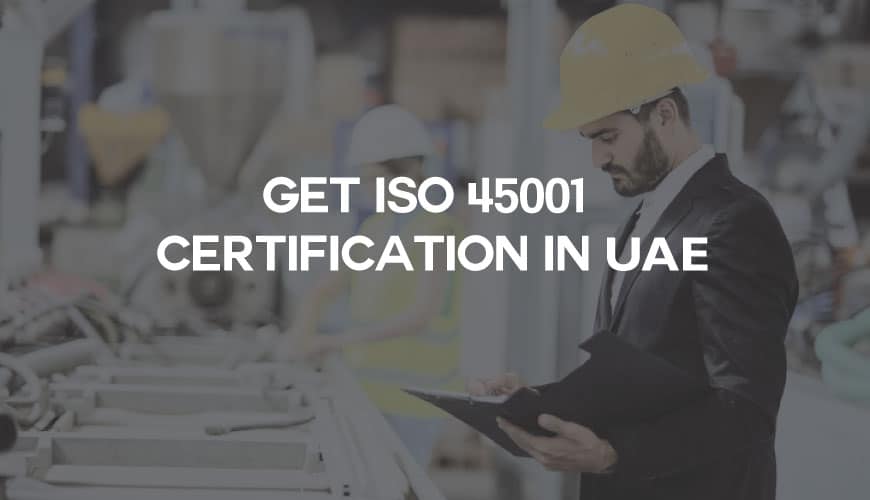
ISO 45001 certification in UAE is becoming increasingly important for companies looking to prioritize the health and safety of their employees. With the bustling business landscape in the region, it’s crucial for organizations to adhere to international standards in occupational health and safety management.
The ISO 45001 certification provides a framework for creating a safe work environment, reducing workplace risks, and promoting overall well-being. Companies in the UAE are recognizing the significance of this certification in enhancing their reputation, fostering employee trust, and ultimately improving productivity.
As the demand for ISO 45001 certification grows, more and more businesses are seeking guidance on how to achieve this accreditation. If you’re navigating the complexities of occupational health and safety compliance in the UAE, understanding the basics of ISO 45001 is essential.
From risk assessment to emergency preparedness, this certification covers a wide range of aspects that are crucial for maintaining a safe workplace. Stay tuned as we delve deeper into the fundamentals of ISO 45001 certification in the UAE and provide valuable insights for businesses looking to prioritize the well-being of their workforce.
Overview of ISO 45001 Certification
Obtaining ISO 45001 in the UAE shows a commitment to employee well-being, risk management, and legal compliance. Companies with this certification demonstrate dedication to high standards of health and safety practices. ISO 45001 helps enhance reputation, build trust with stakeholders, and boost efficiency. The process involves assessment, making changes, and regular audits to keep the certification. Embracing ISO 45001 is a strategic move that not only protects employees but also drives long-term business success in the competitive UAE landscape.
Benefits for Businesses in UAE
Implementing the ISO 45001 standard can boost operational efficiency and productivity, as well as create a positive company culture focused on employee well-being. Additionally, obtaining ISO 45001 certification shows dedication to health and safety, building trust and reputation in the market. This certification also helps mitigate risks and position the company as a responsible business in the UAE.
ISO 45001 benefits in the UAE go beyond internal improvements and external validation. Companies can gain a competitive advantage by highlighting their commitment to safety and compliance, establishing themselves as reliable partners in the market. Furthermore, ISO 45001 helps organizations identify and address risks proactively, resulting in cost savings from fewer accidents, lower insurance premiums, and reduced liabilities. This proactive approach not only safeguards employees but also positively impacts the bottom line and sustainability of businesses in the dynamic UAE business landscape.
Steps to Obtain Certification
To start, an organization should create and document its occupational health and safety management system according to the standard’s rules. This involves doing a detailed gap analysis to find areas needing improvement. Next, companies should make necessary changes and take actions to address any gaps found. Training employees on the new system and procedures is vital to ensure successful implementation and compliance.
After the implementation phase, organizations undergo an audit by a certification body to evaluate the effectiveness of their management system. The audit process typically includes document reviews, on-site inspections, and interviews with personnel to confirm compliance with ISO 45001 requirements. If the audit is successful, the certification body grants the ISO 45001 certification to the organization, acknowledging its dedication to occupational health and safety best practices.
Common Misconceptions Debunked
Many people think the process for obtaining certification is long and complicated. However, with guidance and commitment, companies can efficiently navigate the steps. Another misconception is that only large corporations benefit from ISO 45001. In fact, businesses of all sizes can improve workplace safety and performance by implementing this standard.
Furthermore, some believe ISO certification is a one-time achievement with no ongoing requirements. In reality, it requires regular audits and continuous improvement to maintain compliance. Addressing these misconceptions can help organizations in the UAE decide if pursuing ISO 45001 certification is right for them.
Success Stories of Certified Companies
These success stories demonstrate the benefits of prioritizing health and safety standards in organizations. Achieving ISO 45001 certification has improved internal processes and enhanced reputation in the market. In the UAE, a construction company reduced workplace accidents and injuries by implementing ISO 45001. This resulted in higher morale, productivity, and cost savings. The commitment to safety not only helped employees but also strengthened relationships with clients who valued working with a certified organization.
voicedrop.ai tagarticly.ai tag
Conclusion
As the demand for safer and healthier workplaces continues to grow, the importance of ISO 45001 certification in the UAE cannot be overstated. This internationally recognized standard not only demonstrates a company’s commitment to the well-being of its employees, but also opens up new business opportunities and enhances reputation.
With the guidance of experienced consultants, navigating the certification process can be a relatively smooth journey, leading to a plethora of benefits for both employers and employees alike. So why wait? Take the initiative to prioritize occupational health and safety within your organization and reap the rewards of ISO 45001 certification.
The road to a safer and more sustainable future starts now.
